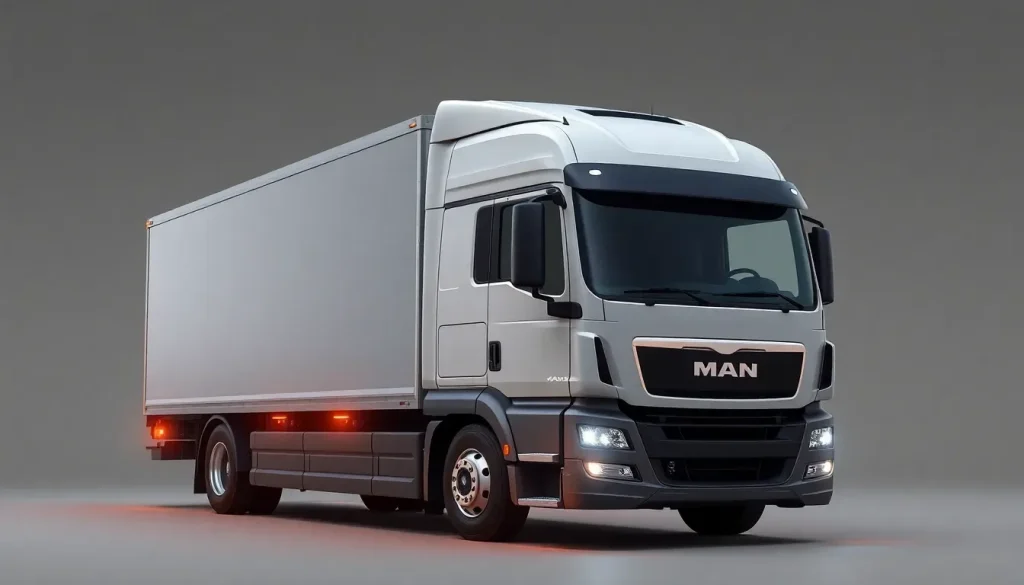Webfleet and RIO provide seamless connectivity for MAN vehicles

In an era where technology is rapidly transforming industries, the integration of digital solutions in fleet management has become a game-changer. The collaboration between Webfleet and RIO is an excellent example of how connectivity can enhance operational efficiency for transportation businesses. This partnership not only simplifies fleet management but also paves the way for a more sustainable future.
- The impact of digital revolution on transportation technologies
- Understanding the importance of multimodal transportation
- Webfleet and RIO: A groundbreaking partnership
- Comprehensive features for fleet optimization
- The future of data connectivity in transportation
- Streamlining fleet activation with OEM.connect
The impact of digital revolution on transportation technologies
The digital revolution has catalyzed significant advancements in transportation, particularly in fleet management. With the advent of technologies such as the Internet of Things (IoT), artificial intelligence (AI), and big data analytics, companies are now able to streamline operations like never before.
One of the key benefits of digitalization in transportation is the accessibility of real-time data. This allows fleet operators to monitor vehicle performance, driver behavior, and maintenance needs instantaneously, fostering more informed decision-making.
- Enhanced efficiency: Real-time tracking leads to optimized routes and reduced fuel consumption.
- Improved safety: Monitoring driver behavior helps in identifying risky driving patterns.
- Cost savings: Predictive maintenance reduces downtime and repair costs.
- Environmental benefits: Efficient fuel usage contributes to lower emissions.
Understanding the importance of multimodal transportation
Multimodal transportation involves using two or more modes of transport to move goods, which can significantly enhance operational efficiency. This approach is increasingly essential in a globalized world where supply chains are often complex.
Here are some reasons why multimodal transportation is gaining traction:
- Flexibility: Operators can select the best transport mode based on cost, speed, and cargo type.
- Cost-effectiveness: Combining different transport methods can lower overall shipping costs.
- Reduced transit times: Efficient routing across various modes can speed up delivery.
- Lower environmental impact: Using intermodal transport can result in a smaller carbon footprint.
Webfleet and RIO: A groundbreaking partnership
Webfleet, Bridgestone's fleet management solution, has announced a significant collaboration with RIO, a company associated with MAN. This integration marks a notable milestone as it is the first to link trucks and buses through Webfleet’s OEM.connect program.
Thanks to this partnership, MAN vehicles equipped with factory telematics can now connect seamlessly to the Webfleet platform via RIO. This integration is particularly advantageous as it does not require any additional hardware, installation, or downtime, thus allowing fleet operators to access real-time vehicle information instantly.
The immediate benefits for operators include:
- Real-time tracking: Monitor vehicle locations and performance consistently.
- Ignition status: Keep tabs on whether vehicles are in use or idle.
- Fuel management: Access to data on fuel levels and consumption trends.
- Speed monitoring: Ensure safer driving practices through speed data analysis.
Comprehensive features for fleet optimization
The integration of Webfleet and RIO provides a suite of features that enhance the management of truck and bus fleets:
- Smart journey management: Plan and execute routes more efficiently.
- Driver training: Leverage data to improve driver skills and safety.
- Fuel savings: Insights on fuel usage help implement cost-saving measures.
These capabilities allow operators to optimize fleet performance without the need for modifications or incurring downtime. This is particularly important in an industry where operational disruption can lead to significant financial losses.
The future of data connectivity in transportation
Webfleet's commitment to enhancing its OEM.connect ecosystem, which now includes over 20 leading vehicle brands, underscores the importance of collaboration between manufacturers and software providers. This partnership approach enables quicker connectivity while also reducing operational costs.
Furthermore, Webfleet is actively participating in the Mobility Data Space, an initiative aimed at creating a secure and sovereign data exchange market within the mobility sector. This facilitates the harmonization of data standards among original equipment manufacturers (OEMs), which is crucial for ensuring consistency and quality in vehicle data.
The benefits of this collaborative approach include:
- Consistent data access: Operators can access high-quality vehicle data from multiple manufacturers.
- Accelerated digital transformation: Streamlined data sharing supports the digital evolution of commercial transport.
- Enhanced decision-making: Reliable data leads to better operational insights and strategies.
Streamlining fleet activation with OEM.connect
Starting in September 2025, European fleets will find it easier than ever to activate their MAN vehicles. The OEM.connect process allows operators to simply add their connected MAN fleet to Webfleet without any additional steps, further simplifying fleet management.
This streamlined activation process is expected to revolutionize how operators engage with their fleets, making it more efficient and user-friendly. As digital solutions continue to evolve, the future of fleet management looks promising.
For a deeper insight into how Webfleet can transform fleet management, check out this informative video:




Leave a Reply